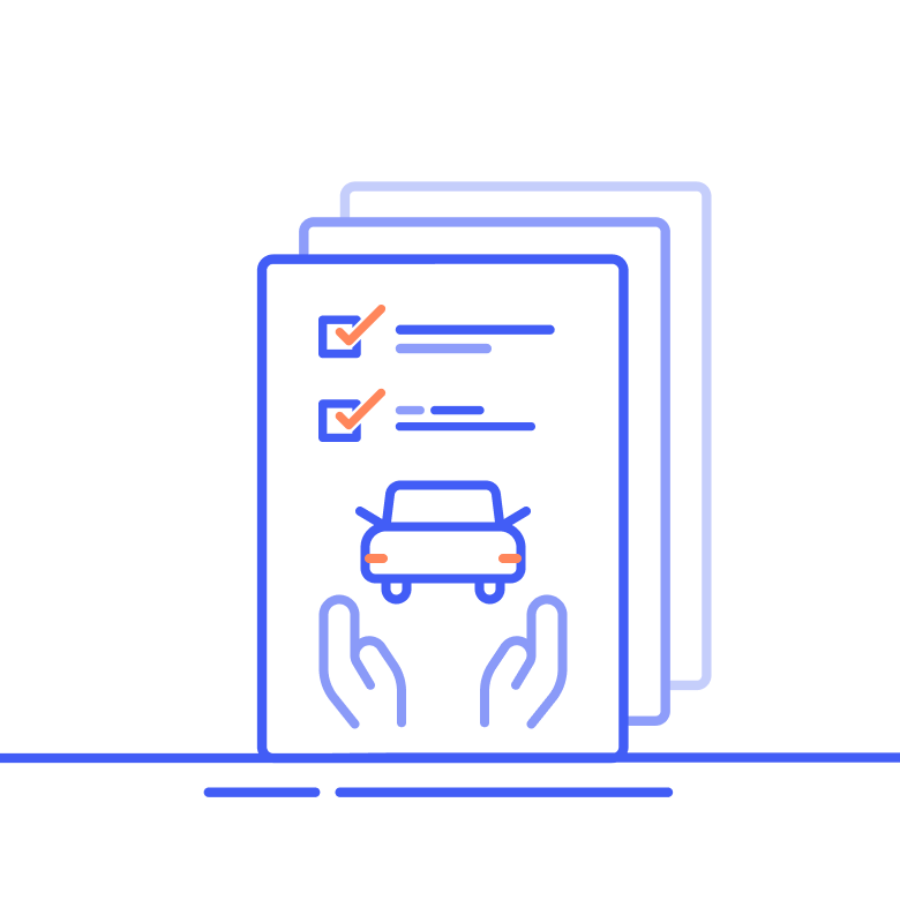Estate Settlement
Dec 04, 2024
How Do Executors Mail Inheritance Checks?
Find out how inheritance checks are mailed, including security measures and what to do if there are delays in receiving them.
Don't know how to transfer vehicle ownership of the deceased in Ontario? Our guide has got you covered. Follow these simple steps to get it done:


As the executor of a loved one's estate, you're tasked with a number of responsibilities, one of which is transferring ownership of the estate car - either to a beneficiary or through a private sale.
This process can be confusing and complex, but with the right information, it can be handled efficiently and effectively.
In this article, we'll guide you through the steps involved in transferring ownership of a car after someone has passed away in Ontario, helping you navigate this process with confidence.
Get ready to gain a deeper understanding of the process and to ensure a smooth transition of ownership.
For vehicle transactions in Ontario, required documents vary based on sale/purchase/transfer.
In the event you as the estate trustee are looking to transfer the ownership of a vehicle from the decedent to a beneficiary or to a buyer, the following documents are required:
if the person receiving ownership of the vehicle is the decedent’s spouse, a safety standards certificate is not required. However, they will need to fill out a Spousal Declaration.
Finally, it is important to remember that while most ownership transactions can be completed online through Service Ontario, transferring the ownership of a vehicle of the decedent requires that the transferor attends in person at a Service Ontario branch.

Receive comprehensive, step-by-step instructions for transferring the ownership of a deceased vehicle.
Once all of the necessary documents have been gathered, the estate trustee is ready to have ownership of the vehicle transferred to a different party. That may be a dealership, private buyer, or a beneficiary as outlined in the will.
In the event the loved one passed away testate and you have all of the above documents on hand, transferring ownership to a buyer or beneficiary is straightforward.
Once you have transferred ownership to you as the executor by visiting a Service Ontario branch, you’ll also need a Used Vehicle Information Package (UVIP). This can be purchased from Service Ontario for $20.
The UVIP contains the following:
So long as you are not selling/transferring the vehicle to a spouse, a Safety Standards Certificate from a licensed mechanic is also required.
Upon purchasing a UVIP, these are the steps you need to take to properly document the sale:
In contrast to private sales, transferring ownership to a family member does not incur Retail Sales Tax (RST), as the transfer counts as a gift.
To transfer ownership to a family member that is not a beneficiary, you will require the following:
After these have been collected and filled out, find your nearest Service Ontario location.
When transferring to a beneficiary the same documents will be required, as well as a copy of the will, death certificate, and certificate of appointment of estate trustee.
When a person dies without a will in Ontario, it can make the probate process more complicated. Registering a vehicle in this situation is no exception.
To transfer an estate vehicle from an intestate vehicle, here’s what you need:
Though it may seem counter-intuitive, the process for transferring ownership of a vehicle when a will was not in place is nearly the same. Rather than the assets being distributed according to a will, they will be distributed according to Ontario’s Succession Law Reform Act.
Once a suitable estate trustee has been found and appointed, and the vehicle has been transferred to the executor (if a sale or non-beneficiary transfer is occurring), the steps are the same.
If the ownership of the vehicle is to be transferred to a beneficiary as per the applicable statutes, following the above steps similar to if a will was in place, will provide the same result. Note that a certificate of estate trustee without a will is required.
Feeling overwhelmed by all the forms, regulations, and time it will take to transfer ownership of a loved one’s vehicle? We’re here to help.
With decades of professional experience in wills & estates law, executor services, estate accounting, and more, ClearEstate’s team of professionals can ensure your ownership transfer goes smoothly. Interested? Book a free consultation with us today.
 Simplify Probate Today
Simplify Probate Today
Get expert guidance from our probate specialists who've helped 10,000+ families.
Book a free consultation today